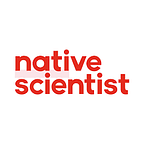Where do we belong?
Author: Anna Napolitano
I grew up having to show my ID at the borders to be able to visit another country. By the time I was a teenager, everyone was talking about an united Europe, with no borders. I remember the feeling of being able for the first time to go abroad without passing infinite queues at the border control, and liked the idea of being able to choose where in Europe I wanted to live and move to, without the need for tons of paperwork.
In this reality, I have moved freely across Europe and settled down in a country different from my own. As a scientist, I have met people from all over the world, and while some still had to struggle with visa applications, most of the Europeans have the luxury of being able to move around with little bureaucracy and no extra headaches. I have been surrounded by people from many different cultures and by lots of different languages, spoken without any fear. When I joined the science outreach project “Native Scientist” some years ago, I also learned how important it is to share with the younger generations the value of being multilingual and multicultural. Along with the importance of science and scientific discoveries, I’ve shared with first, second and third generation migrant pupils the benefits of speaking more than one language and having a multicultural identity.
In Europe, we have lived in this multicultural heaven for more than a generation, after all the wars that drove us apart. However, as an UK resident, this “dream” ended in June 2016 [1]. People voted for the UK to leave the EU, and many — from children to adults — have started to experience the feeling of not belonging, only because their first or last name sounds different or their English has an accent, even though some were even born and bred in the UK. I clearly remember the frustration I felt the day after the referendum and the sense of disappointment among my friends. I also remember when a colleague of mine shared the frustration she was facing as one of her boys was being told at school, repeatedly, that he should go back to where he came from.
When we embrace a scientific career, regardless of which direction it takes, we know that at some point we may have to leave our home country and spend some time abroad, whether for a few months or for many years. That’s exciting for some, frightening for others. Wherever we go, we will have to face the inevitable language and cultural barriers, which can turn the most straightforward everyday situations into insurmountable challenges. Every year, millions of people around the world, scientists or not, take this big step of living in a country different from the one they grew up in. The positive sides of living abroad, such as broadening our horizons and learning from new cultures and new experiences, often overcome those initial alienating feelings, so much so that many people then decide to make the new country their home for life. In fact, there are studies showing that international experiences can enhance creativity, reduce inter-group biases, and promote career success [2, 3].
I chose to live in the UK. I have started a family here. I pay taxes and I might bring some glory and honour with my labour to this adopted nation. Yet, sometimes I face adversities like people shouting “go back to where you came from”. But where exactly do I come from? When you live in a country for several years, it becomes hard to answer the question of where your home is. Sometimes, it is where your job is. Other times, it’s where your heart is. And sometimes it’s where you spent your childhood or where you lived during a significant life event. Where do I come from? I come from Italy and I come from the UK. My home is both places. We all have multiple origins and if people took the time to analyse their genealogical trees, I am sure that they would realise, perhaps surprisingly, that actually none of them exclusively belong to a land or the other.
I believe that we should all come together, welcome the exchange of our personal experiences and background, and build a better humanity: a mix of every country and every culture. A famous Italian song says ‘you know where you are born, but you don’t know where you are going to die’ [4]. Our roots come from all over the world and anyone can spend their life in a different home than the one they were born in. Therefore, in a way, we are all natives, we are all foreigners.
About the author: Anna Napolitano is a QA and 3Rs Programme Manager at Imperial College London, and the Italian Coordinator in London for Native Scientist. Anna has always had a deep interest in the communication of science; she started her career as a research scientist and is now a full-time science writer, science editor and science communicator. She believes that it is only through rigorous yet compelling communication strategies that we can achieve a better understanding of healthcare issues and contribute to the progress of science — and she is committed to playing her part.
About Native Scientist: Native Scientist is an award-winning European-wide non-profit organisation that promotes cultural diversity in science, education and society. Native Scientist provides science and language workshops, science communication training, and bespoke projects for various institutions, including schools, universities and embassies. The work developed connects pupils with scientists to foster science and language literacy through role modelling and science and language integrated learning. Founded in 2013, their work reaches over 1,200 pupils a year and they count with a network of over 1,000 international scientists.
